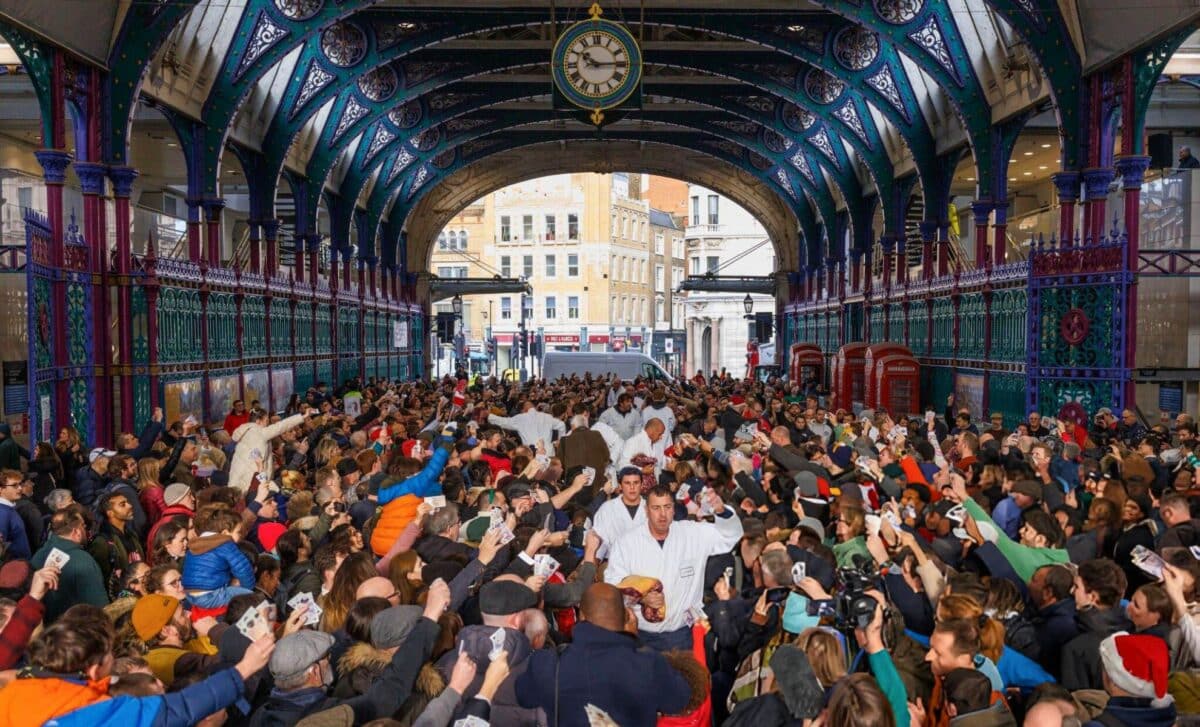Smithfield Market, one of London’s oldest trading sites, is set to close after nearly 900 years of operation. This decision, made by the City of London Corporation, marks the end of a chapter for a historic institution central to the capital’s meat trade for centuries.
Controversy Erupts Over Smithfield Market’s Future
The City of London Corporation sealed Smithfield Market’s fate during a private vote. Initially, the Corporation had planned to relocate the market to Dagenham, in east London, but escalating costs forced the abandonment of the £1 billion relocation scheme. Instead, the market will close, with traders receiving compensation packages totalling more than £300 million.
Legal challenges have arisen over the decision, with three barristers, Gregory Jones KC, Suzanne Ornsby KC, and William Upton KC, warning in a letter that “understanding the social and economic importance of the existing markets is vital to any decision by the court to abolish them, as is the social and economic implication of doing so.” They argue that the necessary food security study, demanded by the Corporation itself, has not been completed, rendering the decision potentially unlawful.
The Corporation, however, defended its position, stating its lawyers were satisfied with the vote’s legality. Chris Hayward, the Corporation’s policy chairman, insisted that the move was necessary, stating that “people are eating less meat and fish. An increasing amount of trade is handled directly online, and we understand that a majority of traders will continue with their businesses.” He further described the market buildings as no longer essential to the traders’ operations, asserting that “the strength of the markets has always been in the traders, not the buildings.”
A New Vision for the Site
Plans for the historic Smithfield site include transforming it into a mixed-use cultural development. This will include the new Museum of London and form part of a broader effort to revitalise the City. Hayward described the decision as “a positive new chapter for Smithfield and Billingsgate Markets in that it empowers traders to build a sustainable future in premises that align with their long-term business goals.”
These redevelopment efforts, part of the Corporation’s “Destination City” initiative, also include major projects such as the Salisbury Square development, which will house new police headquarters and a multi-court complex. Proponents argue that these transformative projects will create “a vibrant, world-class city for workers, residents, and visitors alike.”
Traders Left in Limbo
Despite the official announcements, traders at Smithfield remain sceptical. “I’ve been working here for 30 years, and it’s been about to close for 30 years,” one remarked, capturing the mood of uncertainty. The Corporation has no obligation to find traders new premises, leaving many in limbo. The compensation on offer has also been criticised by some council members, who fear it could amount to a misuse of public funds.
Financial pressures also cloud the issue. The Corporation has already spent £308 million on the failed relocation plan, including £115 million in compensation for Smithfield’s poultry market, which closed last year. Henry Pollard, chairman of the markets’ committee, expressed his frustration in a letter to colleagues, describing the process as “wrong” and questioning the lack of a food security report. He warned that the additional £300 million compensation could be “a misuse of public funds.”
Internal documents reveal that keeping the markets operational for another 20 years would cost a similar amount as scrapping them entirely. Nevertheless, the decision to close, rather than maintain or relocate, is seen as a way to avoid selling off valuable investment assets and to restore financial sustainability to the Corporation’s estate.
A Historic Loss for London
Smithfield Market has been a fixture of London life since the 12th century. William Fitzstephen, a clerk to Thomas Becket, described it in 1174 as “a smooth field where every Friday there is a celebrated rendezvous of fine horses to be sold, and in another quarter are placed vendibles of the peasant, swine with their deep flanks, and cows and oxen of immense bulk.” Its closure signals not only an economic shift, but also the loss of a site steeped in history and tradition.









